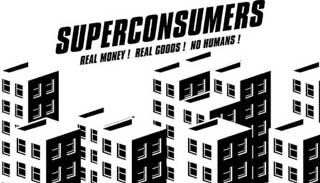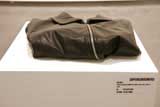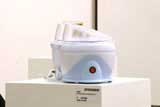In 2003, Franz Alken came up with Superbot / Machines will eat itself, to comment on commercial data-mining. The bots represented fictitious users and surfed the web in order to fill out online forms with their fake personal data, thus junking the databases of overly eager data mining companies.

He recently collaborated with Karl Rueskaefer on Superconsumer, a project that looks at what happens when a computer programme starts buying and selling stuff on internet auctions like ebay autonomously.
Superconsumers makes an amount of money available to a software (a “bot�). The software uses this money to buy goods autonomously at ebay, transfers this goods to an art gallery, exhibits them and re-sells them via ebay.


The goods the Bot has bought are exhibited for a short time. Thus digital values are translated into tangible goods. And vice versa, since the Bot sells them again after a while to buy new ones. In a kind of ready-made fashion, everyday products are temporarily translated into works of art. What’s more, everyone dealing with the bot at ebay is currating the exhibition without suspecting it.
The programming of the process makes the items the bot buys unpredictable – a search on the topic “footballâ€? can respond items like fan-articles, computer games, books or sportswear.
The exhibition-module consists of a computer-interface displaying the softwares actions at ebay, 7 pedestals that show the current goods and a watchmann who executes the softwares instructions and arranges the goods on the pedestals.
Part of Interface and Society, a conference and an exhibition that investigate artistic practices and strategies that deal with the transformation of our everyday life through electronic interfaces.
Starts on November 10th 2006 at Henie Onstad Kunstsenter outside of Oslo, Norway.
Related: The Big Book Crime.
